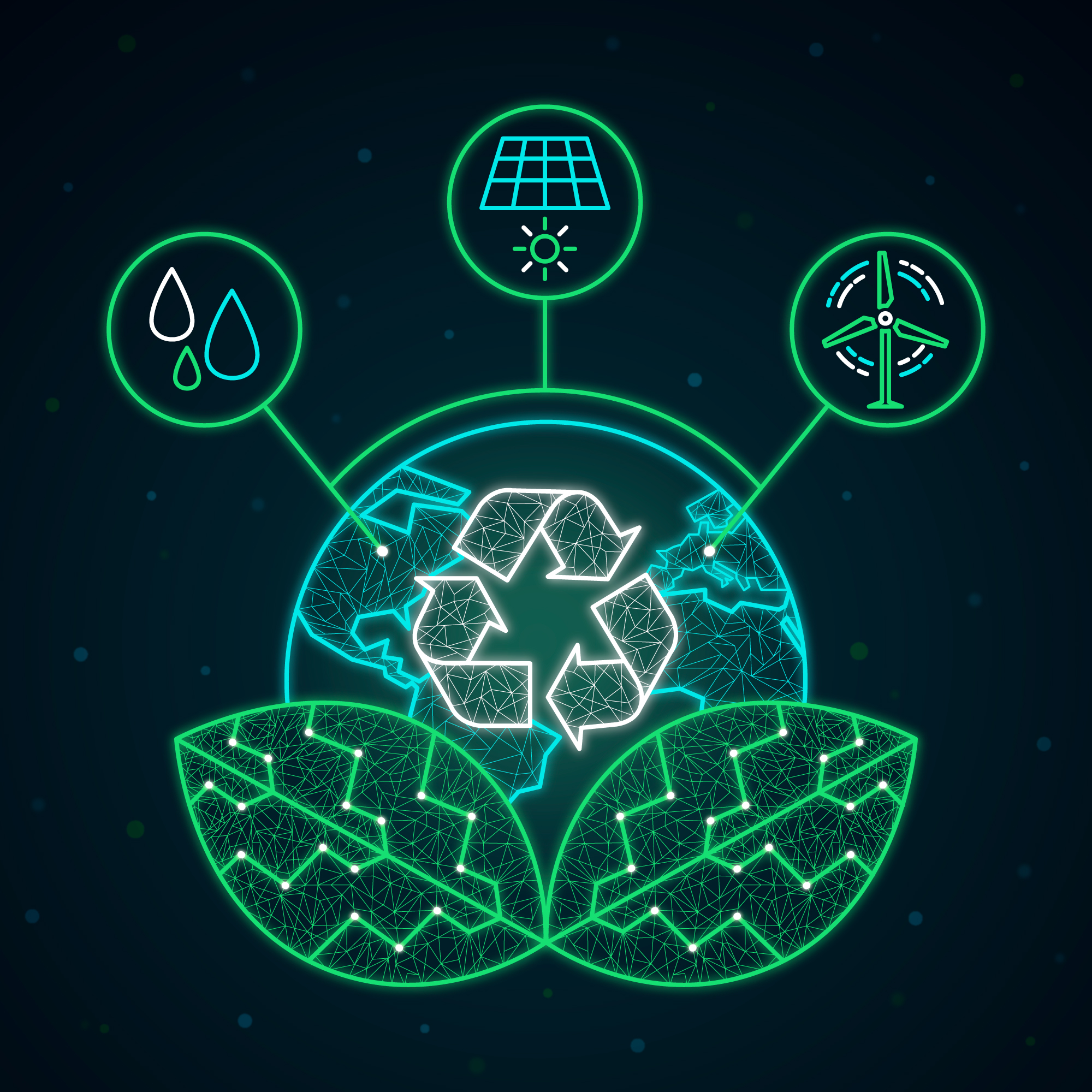Even though it’s now on the rise, eco-friendliness is not a new trend. People are more aware than ever and want to leave a better world behind for generations. Climate change is seen as a serious issue nowadays, and rightly so. On the scale of climate change, the tech industry leans toward the guilty side. For this reason, eco-activists are pushing them to adopt eco-friendly policies and reduce their footprint worldwide.
To talk about footprints, one thing the tech industry does leave is e-waste. E-waste is electronic devices and gadgets that have served their purpose and are almost at the end of their useful life. For example, imagine your father’s old Nokia phone. It has served its purpose, and it’s obsolete now. He wouldn’t want to use it anymore, nor would anybody. So you throw it in the trash. Now, it’s e-waste. Not just old phones; obsolete electronic devices, laptops, gaming consoles, and their components are e-waste, too. More than 400 million metric tons of e-waste are generated globally every year. Of all the toxic waste we humans generate each year, e-waste has the lion’s share – 70%. But only 12.5% of this is recycled every year.
What does going green mean in the tech industry?
Going green in the tech industry is about more than just reducing carbon emissions and e-waste. It also involves producing goods or services that conserve energy and money while minimizing waste and adverse environmental effects. The big names in the industry, such as Apple, Samsung, Amazon, Facebook, Microsoft, etc., are now targeting to create products that will last longer, reducing e-waste. They are also investing heavily in renewable energy, energy-efficient data centers, and using recycled material. This is creating a positive shift toward the ultimate eco-friendliness from the tech industry.
Big names, significant steps
Being eco-friendly is about more than just the trend. It is also leaving a safer world for subsequent generations. Big names in the industry have some goals, including eco-friendly practices in the mix. For instance, the big names in the industry are trying to be carbon neutral or switching to renewable energy. Here are some of them and their eco-friendly practices –
- Apple – Apple has set a goal to be carbon neutral by 2030. The company has been using 100% renewable energy since 2021. They have also reduced the amount of packaging used for their products by 70% since 2008. Also, they have set a goal to make all their products 100% recyclable by 2030.
- Microsoft – Microsoft wants to remove more carbon from the atmosphere than they emit; in other words – carbon negative by the end of 2030. They also set a goal to be water-positive – replenish more water than they use by 2030. They have also achieved 100% renewable energy usage for their global operations. Also, they are adopting a zero-waste policy where they will recycle or compost all of their waste. Also, the company achieved 100% renewable energy usage in 2022.
- Amazon – This internet marketplace has committed to 100% recyclable packaging by 2025. They are also heading towards their goal of being net zero carbon emissions by 2040. 90% of the electricity used by Amazon was from renewable energy sources, and they are heading towards 100% renewable energy usage by 2025 – 5 years ahead of their initial target of 2030. They have also recycled/composted 99% of the waste from their facilities since 2019.
- Google– Google used 100% of their energy from renewable sources in 2022 and plans to keep doing so. They have also reduced their carbon emission by 51% since 2007. The company plans to be carbon neutral by the end of 2030. Also, they achieved zero waste to landfill in 10 out of their 26 data centers in 2022. The target is to achieve zero waste to landfill in all of their data centers by 2025. Google is also working to make their product more energy efficient and plans to make all their products carbon neutral by 2030.
- Meta Platforms Inc. (Formerly Facebook Inc.) – Meta matched 100% of their global electricity consumption with renewable energy. In 2022, the company has recycled or composted 87% of their waste. Meta has also planned to replenish 120% of the water in their data centers and offices. Like Google, they also pledged to make all their hardware products carbon-neutral by 2030.
The green tech hurdles
Going green can be challenging for tech companies due to high initial costs, unreliable tech, ever-evolving regulations, public perception, and internal resistance. Companies may struggle to take eco-friendly steps and keep up with their ongoing production and sales. However, even with these obstacles, companies are shifting towards eco-friendly practices, which is undoubtedly a good sign for the world.
Conclusion
The Tech industry going green is a positive trend. Although it’s challenging to implement, it’s suitable for companies in the long run. Although the road ahead is rough, they are slowly but surely progressing. This could prove beneficial for both the companies and the environment. We have seen nature recover from the harm we have done during the COVID lockdown. If this trend continues, we can be sure that we will leave a better world for future generations.
